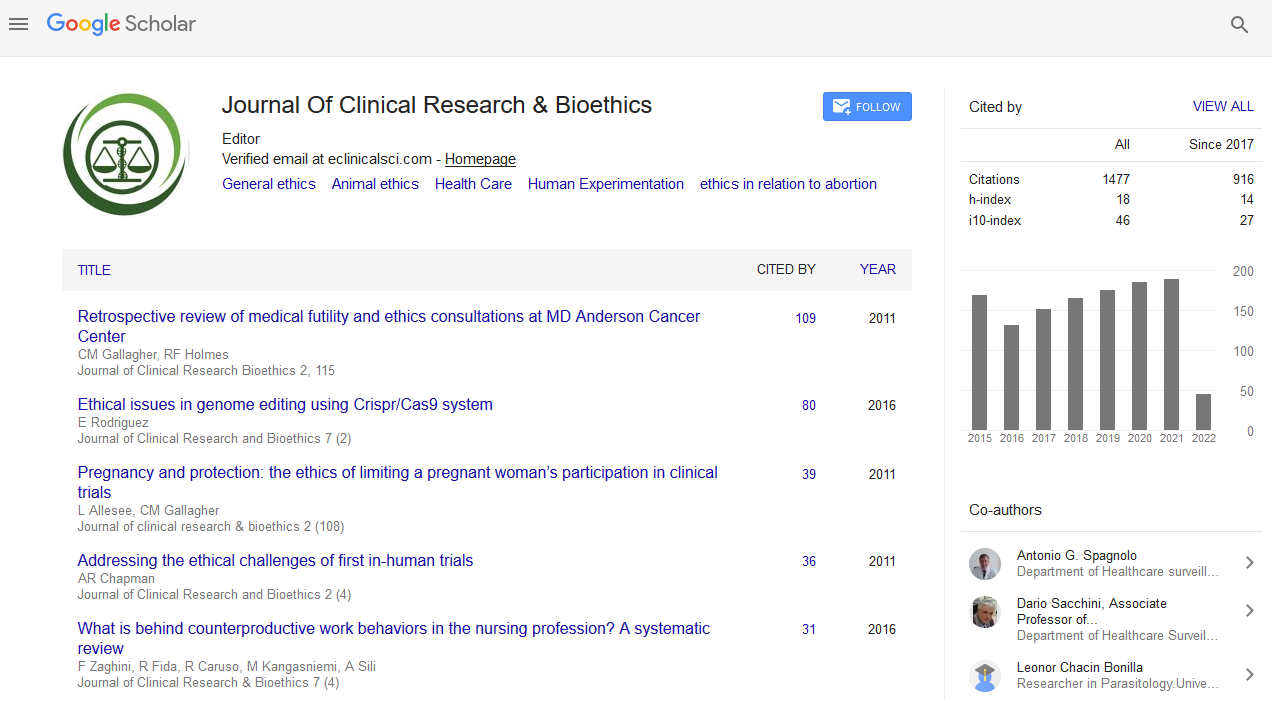PMC/PubMed Indexed Articles
Indexed In
- Open J Gate
- Genamics JournalSeek
- JournalTOCs
- RefSeek
- Hamdard University
- EBSCO A-Z
- OCLC- WorldCat
- Publons
- Geneva Foundation for Medical Education and Research
- Google Scholar
Useful Links
Share This Page
Journal Flyer

Open Access Journals
- Agri and Aquaculture
- Biochemistry
- Bioinformatics & Systems Biology
- Business & Management
- Chemistry
- Clinical Sciences
- Engineering
- Food & Nutrition
- General Science
- Genetics & Molecular Biology
- Immunology & Microbiology
- Medical Sciences
- Neuroscience & Psychology
- Nursing & Health Care
- Pharmaceutical Sciences
Abstract
American Attitudes in Context: Posthumous Use of Cryopreserved Gametes
Attitudes toward reproducing with a deceased spouse’s cryopreserved gametes were examined with a probability sample of 864 respondents from throughout the continental United States. Specifically, a multiple segment factorial vignette was administered to test the effects of five contextual variables: (a) sex composition of the survivor and deceased, (b) marriage duration, (c) deceased’s disposition toward parenthood, (d) cause of death, and (e) wishes of the deceased’s parents. Roughly two-thirds of respondents were supportive of the procedure across experimental conditions, but support was more likely when the deceased was male, the couple had been married longer, the deceased had been looking forward to parenthood, the death was due to a car accident than suicide, and when the deceased’s parents supported the procedure. Rationales for supporting the procedure were primarily focused on the surviving spouse’s wishes or rights, the deceased’s implied or assumed wishes, and the opinion of the deceased’s parents. Those who opposed the procedure most frequently cited the deceased’s unknown wishes, concerns for the potential child, and the opinions of the deceased’s parents.


